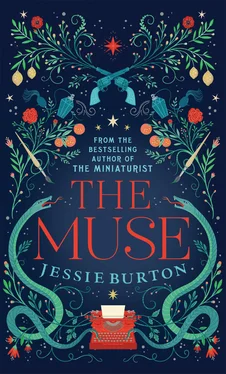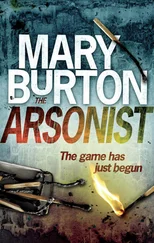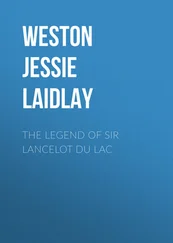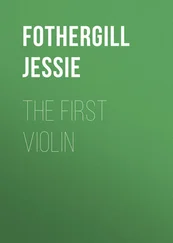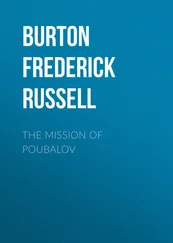‘It is a story about two sisters. They were Christians. They lived in Seville, in. . la época romana ?’
‘Roman times,’ said Olive.
‘Yes. They made pots and bowls. The Romans wanted them to make pots for a party. A pagan party. But the sisters said, “ No, no we won’t. Our pots are our own .” And they broke the mask of the goddess Venus.’
‘Goodness me.’
‘They were arrested. They threw Justa down a well. And Rufina — they made her fight a lion.’
Teresa noted with pleasure how Olive had stilled, listening to her story, as the shadows threw black dancers up the walls and the onion sweated in the pan.
‘A big lion,’ she went on. ‘A hungry lion. En el anfiteatro . All the people watching. But the lion did not want to fight. He sat, he did not move. He would not touch her.’
‘What then?’ whispered Olive.
‘They cut off her head.’
‘ No .’
‘And they threw it down the well to meet her sister.’
Olive shivered. ‘That’s awful.’
Teresa shrugged. ‘I like the lion.’ Her eye was caught by Isaac standing at the door. ‘He knows the value of peace. He keeps his place.’
‘Maybe he didn’t like the taste of bony girl,’ Isaac said. Olive turned to him. He folded his arms and fixed Teresa with a look. ‘Telling stories again, Tere?’
‘She’s a good storyteller,’ said Olive. ‘Imagine waiting down in the darkness whilst your sister faced a lion. Imagine holding her head in your hands; the rest of her, disappeared. What happened to Justa?’
‘She died of the shock,’ said Teresa.
‘So would I,’ said Olive.
‘You don’t know that, señorita,’ said Isaac. ‘You might be strong.’
‘Oh, no. I’d definitely faint.’ Olive looked thoughtful. ‘Do you know, I might visit that church.’
‘Señorita?’
‘Why not?’ said Olive. ‘At least then we could say that one of our lies was actually a truth.’
Lawrie and I made it to the cinema for our first date. In the end, we went for You Only Live Twice . There was so much bare flesh and sadism in it, I was embarrassed for making the suggestion. No romance, just gadgets and Sean Connery’s chest that looked borrowed from an ape. I think, on reflection, I would have preferred to watch Catherine Deneuve, but I was happy simply to sit with Lawrie, to catch his lovely scent, the dense warmth of his body, this person who in turn had chosen me.
Over the next two weeks, we saw each other nearly every single day. It was a fabulous sickness. We went to the Wallace Collection and the National Gallery, to see if we could spot any more paintings with the initials I.R. (no success). We went to the theatre, and I still have the ticket stub. It was called Play by Samuel Beckett, and I had never seen anything like it. I remember my delighted shock as the curtain went up, the three actors revealed — one man and two women, playing his mistress and his wife — stoppered to the neck in giant grey funeral urns, unable to move, gabbling incoherently before they began interspersing their stories to the audience, remaining oblivious of one another.
We went to Soho restaurants and bars — All Nighters, the Flamingo — and discovered that we danced together very well. I didn’t like having to shout to be heard over the noise and it got very smoky past eleven. We saw gangsters and their girls there: slick hair, gold rings, a shimmer of malevolence. But the important thing was the live music. It was wonderful — ska, calypso, jazz and blues.
I didn’t know it, but a bond had been sealed, and who’d suggested what, who’d wanted what — that strange dance of allusion and manners that distinguishes the first time for anything — had faded. We were dependent on each other without really knowing each other, in that way the young can be when they have never been burned or hurt or discarded, when they share everything, making the mistake that the other person is the answer to their confusing sum. He was lonely and I was lost — or was it the other way round? We hadn’t slept together; it hadn’t got to that yet. It was very innocent, in its way.
Since our exchange in the rain on Piccadilly Circus, I’d hardly seen Quick. Only Pamela and I — and a couple of the academics, who normally kept to the basement with the archives — seemed to come in dutifully every day. Quick seemed to be absent more than you would consider acceptable, often only coming in for a couple of hours. We were attached to the research part of the building, not the gallery round the front on Jermyn Street, so it was always quiet. I missed Quick’s attention.
In her absence, Pamela invited me to eat my sandwiches with her in the courtyard, leaving the reception desk unattended. I’d hesitated, firstly because I was still finishing my Muriel Spark book, a collection of short stories and radio plays she’d had published six years before. The second reason was that I did not really want to hear more about ‘people like you’ — a phrase that Pamela occasionally slipped into our conversations — but my lack of contact with Cynthia, and the absence of Quick, was making me miss female company. And thirdly: I really thought someone should be manning reception.
Pamela’s lunchtime questions about life in Trinidad were a lesson to me in how little her school days, and all the days after, had taught her of the Empire’s reaches. But she also had a genuine curiosity — the weather and what humidity and heat did to books, to clothes, they how they shaped the food your mother once made you, the music you listened to, the people you knew — Pamela’s questions made me realize how far away from it I really was. It conjured Cynth, our long journey together, and then it reminded me of our stupid stand-off, and I thought I might cry, so instead I pushed Pamela to talk. She told me about her mother the seamstress, and how her father portered meat at Smithfield. She had five brothers — and a sister, she said, who’d died when Pamela was eight.
‘I’ve got to ask, Odelle — you got a feller?’ she said. ‘You been looking sort of dopey these last few weeks.’
I hesitated. I so wanted to talk about Lawrie, about love — what it might feel like, and whether I was in it. ‘No,’ I said, instead. ‘I haven’t.’
Pamela narrowed her eyes. ‘All right. You keep your secrets. I’ve got a boyfriend. Billy. He works behind the scenes at All Nighters, but I wouldn’t expect you’d go there.’
‘Why?’ I said.
She laughed. ‘’Cos you’re too sensible to waste your youth dancing in clubs.’
I laughed back, intuiting true flattery in her comment, that for the first time, she was imbuing me with some sort of sophistication and status. But I could still picture how Lawrie and I had danced in that very club, the sweat running down our backs. It did feel like a different me.
Pamela wore Billy like a medal, but thinking of the men I’d seen there, I wondered if he was more of a bronze than a gold. As the days wore on, and our sandwich lunches continued, my book of Spark stories still unfinished, I found myself surprised to feel sorry for Pamela, whose company I was coming to enjoy. ‘Billy’s got big dreams,’ she’d say, but never elaborated about what exactly, and I had the feeling they didn’t really include her.
Reede had telephoned Lawrie, saying he’d had an ‘inordinate piece of luck’ with the Prado gallery in Madrid, and could Lawrie come as soon as possible. On the morning he was due at the Skelton, he was already waiting for me on a bench in the middle of the square.
‘Hel-lo,’ I said, sitting down next to him. ‘Excited for news of the lion girls?’
Читать дальше
